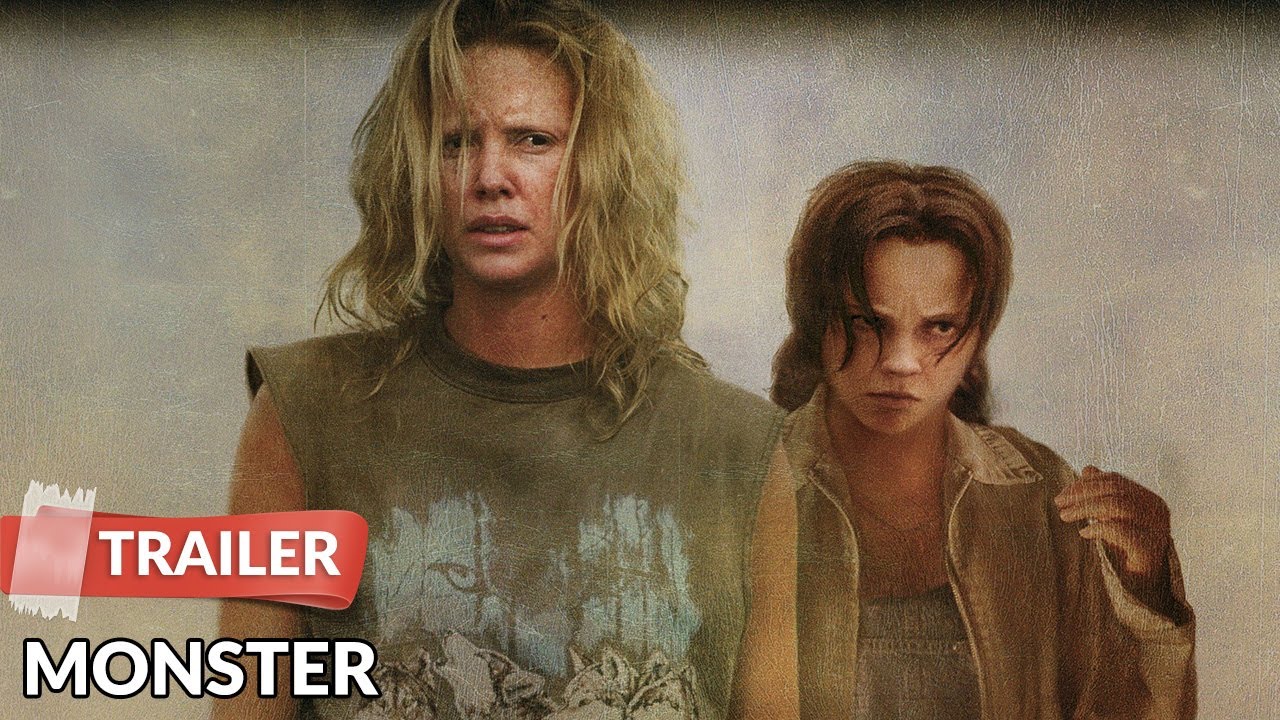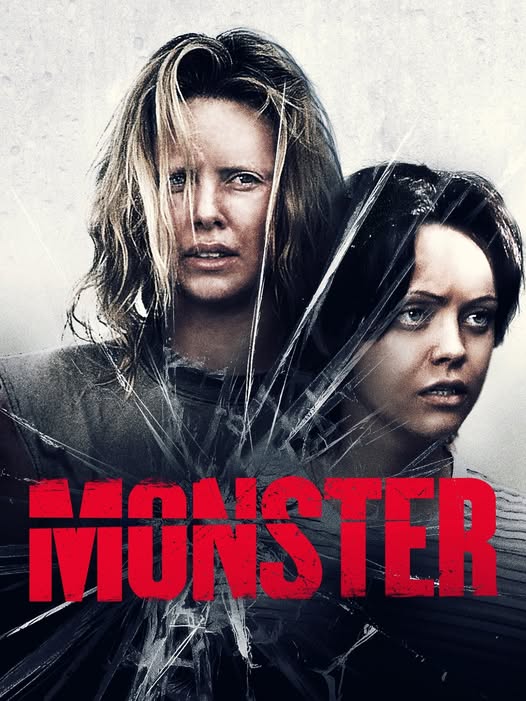Monster (2003)

Monster (2003) is a haunting, deeply human character study that defies the conventions of crime biopics, offering instead a raw, empathetic, and emotionally devastating portrait of a woman pushed to the edge of society. Based on the true story of Aileen Wuornos, a former sex worker turned serial killer, the film strips away sensationalism in favor of exploring trauma, mental illness, and systemic neglect. It’s a bold and uncompromising film that is as emotionally complex as it is narratively gripping, elevated by one of the most transformative performances ever captured on screen.

The story follows Aileen, who survives on the margins of society, hitchhiking and selling sex along Florida’s highways. After a chance encounter with a young woman named Selby, Aileen begins to believe she has found love, acceptance, and perhaps a second chance. But as her desperation deepens and violence becomes a form of self-preservation, she spirals into a series of murders that turn her from victim into predator. Through her volatile relationship with Selby, the film reveals Aileen’s aching need for connection, dignity, and freedom, even as her choices lead her further into darkness.
As a biographical crime drama, Monster veers more into psychological and social realism than typical genre fare. It doesn’t glorify or excuse Aileen’s crimes but invites the viewer to understand the pain, poverty, and abuse that shaped her worldview. The film grapples with difficult moral questions about justice, empathy, and who gets to be seen as human. Its tone is bleak yet intimate, constructed with care to reflect the internal world of a deeply wounded soul.

The cinematography is gritty and naturalistic, capturing seedy motel rooms, rain-slicked roads, and sun-bleached streets with unflinching honesty. The camera lingers on faces, silence, and stillness, letting emotion unfold organically. The makeup and costume design are astonishing in their realism, particularly in Charlize Theron’s complete physical transformation. Her performance as Aileen is not only physically unrecognizable but emotionally immersive, portraying vulnerability, rage, hope, and despair with breathtaking authenticity.
In the end, Monster is a tragic and unforgettable film that forces audiences to confront uncomfortable truths about society’s outcasts and the cycles of violence that create monsters. It is not a story about evil—it is a story about pain, love, and the devastating cost of being unseen.











